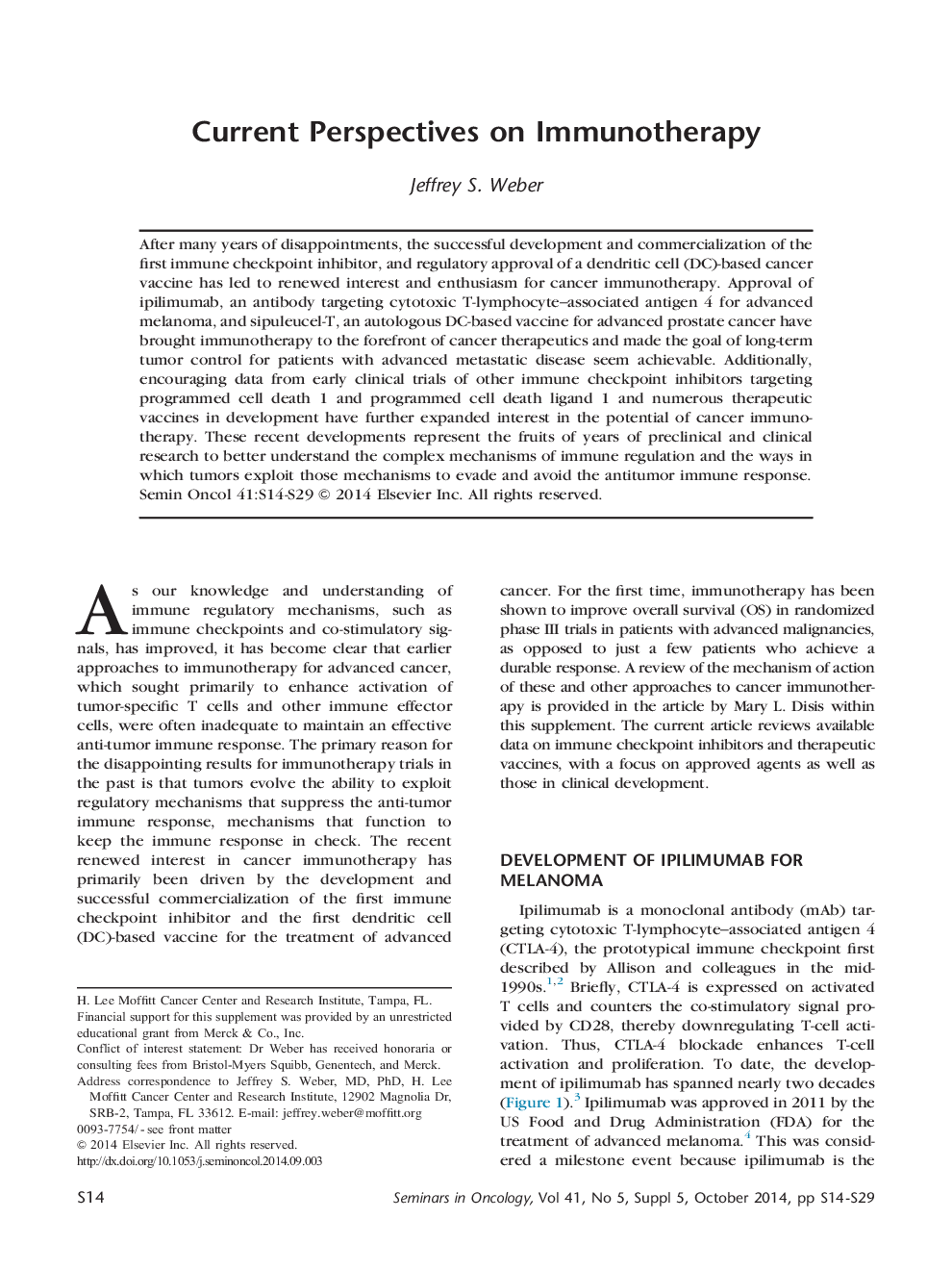| Article ID | Journal | Published Year | Pages | File Type |
|---|---|---|---|---|
| 10924410 | Seminars in Oncology | 2014 | 16 Pages |
Abstract
After many years of disappointments, the successful development and commercialization of the first immune checkpoint inhibitor, and regulatory approval of a dendritic cell (DC)-based cancer vaccine has led to renewed interest and enthusiasm for cancer immunotherapy. Approval of ipilimumab, an antibody targeting cytotoxic T-lymphocyte-associated antigen 4 for advanced melanoma, and sipuleucel-T, an autologous DC-based vaccine for advanced prostate cancer have brought immunotherapy to the forefront of cancer therapeutics and made the goal of long-term tumor control for patients with advanced metastatic disease seem achievable. Additionally, encouraging data from early clinical trials of other immune checkpoint inhibitors targeting programmed cell death 1 and programmed cell death ligand 1 and numerous therapeutic vaccines in development have further expanded interest in the potential of cancer immunotherapy. These recent developments represent the fruits of years of preclinical and clinical research to better understand the complex mechanisms of immune regulation and the ways in which tumors exploit those mechanisms to evade and avoid the antitumor immune response.
Related Topics
Life Sciences
Biochemistry, Genetics and Molecular Biology
Cancer Research
Authors
Jeffrey S. Weber,
